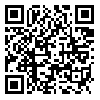BibTeX | RIS | EndNote | Medlars | ProCite | Reference Manager | RefWorks
Send citation to:
URL: http://jdm.tums.ac.ir/article-1-143-en.html
Background and Aim: In spite of the achievements in the field of dental adhesives, we are facing challenges with dentine bonding resistance, strength and stability. According to recent studies the role of MMP inhibitors in association with bonding,s persistence and leakage reduction and restoration,s persistence is important. The aim of this study was to investigate the effect of doxycycline as a MMP inhibitor on the degree of conversion (DC) of an experimental dental adhesive.
Materials and Methods: In this experimental study, a new dental adhesive blend was prepared by mixing doxycycline monohydrate (in concentrations of 0.0, 0.25, 0.5, and 1 wt.%) with monomers. The monomers were composed of 12% Bis-GMA and 10% TMPTMA, 28% HEMA, and 50% Ethanol by weight for all groups. Comphorquinone and amines were chosen as photo initiator system. Degree of conversion of all adhesives was measured using FTIR spectroscopy. The results were analyzed using one-way ANOVA and Tukey post hoc tests.
Results: The results showed that addition of 0.25, 0.5, and 1 weight percent doxycycline did not significantly reduce the DC of the adhesives compared to 0.0% control group (p>0.05%).
Conclusion: According to the results of this study, adding doxycycline to the adhesives did not adversely affect the DC.
Received: 2008/08/17 | Accepted: 2009/07/21 | Published: 2013/10/2
| Rights and Permissions | |
 |
This work is licensed under a Creative Commons Attribution-NonCommercial 4.0 International License. |




